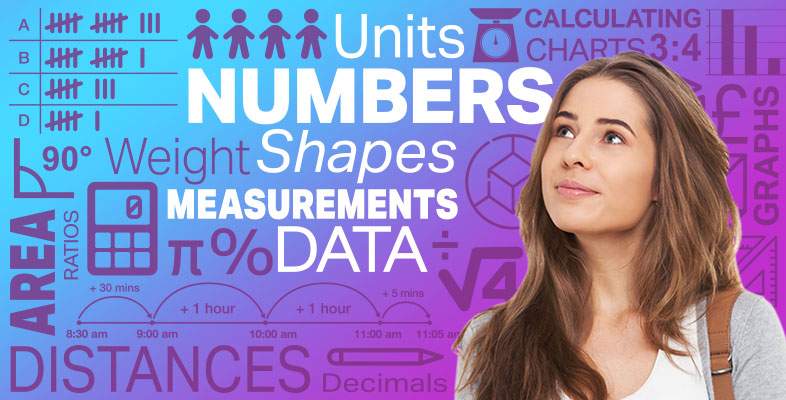Having good maths skills are important for everyday life. In fact, you may have never noticed how often you use maths on a day-to-day basis. This free course serves as good preparation for Level 2 Functional Skills in maths, and whilst it does not cover all aspects of the current curriculum, it is designed to inspire you to improve your current maths skills and help you to remember any areas that you may have forgotten.
Working through the examples and interactive activities in this course will help you to, among other things, calculate how much paint you'll need for decorating, convert currencies or make progress in your career or further education. To complete this course you will need access to a calculator, a notepad and pen, and a protractor.
Enrolling on this course will give you the opportunity to earn an Open University digital badge. The badge is a great way to demonstrate your interest in the subject. What you learn by completing the course will really help if you wish to enrol on a formal qualification.
Once you are signed in, you can manage your digital badges online from your OpenLearn Profile. In addition, you can download and print your OpenLearn Statement of participation – which also displays your badge.
This course has been produced as part of the Department for Education’s Flexible Learning Fund and with the kind support of Dangoor Education, the educational arm of The Exilarch’s Foundation.

This course was written by West Herts College in partnership with Bedford College Group, Middlesborough College and The Open University.

Earn this free Open University digital badge if you complete this course! The badge can be displayed, shared and downloaded as a marker of your achievement. The badge is awarded for completing the course and passing the quizzes.
Course learning outcomes
After studying this course, you should be able to:
- understand practical problems, some of which are non-routine
- identify the maths skills you need to tackle a problem
- use maths in an organised way to find the solution you're looking for
- use appropriate checking procedures at each stage
- explain the process you used to get an answer and draw simple conclusions from it.
First Published: 13/11/2018
Updated: 20/01/2020
